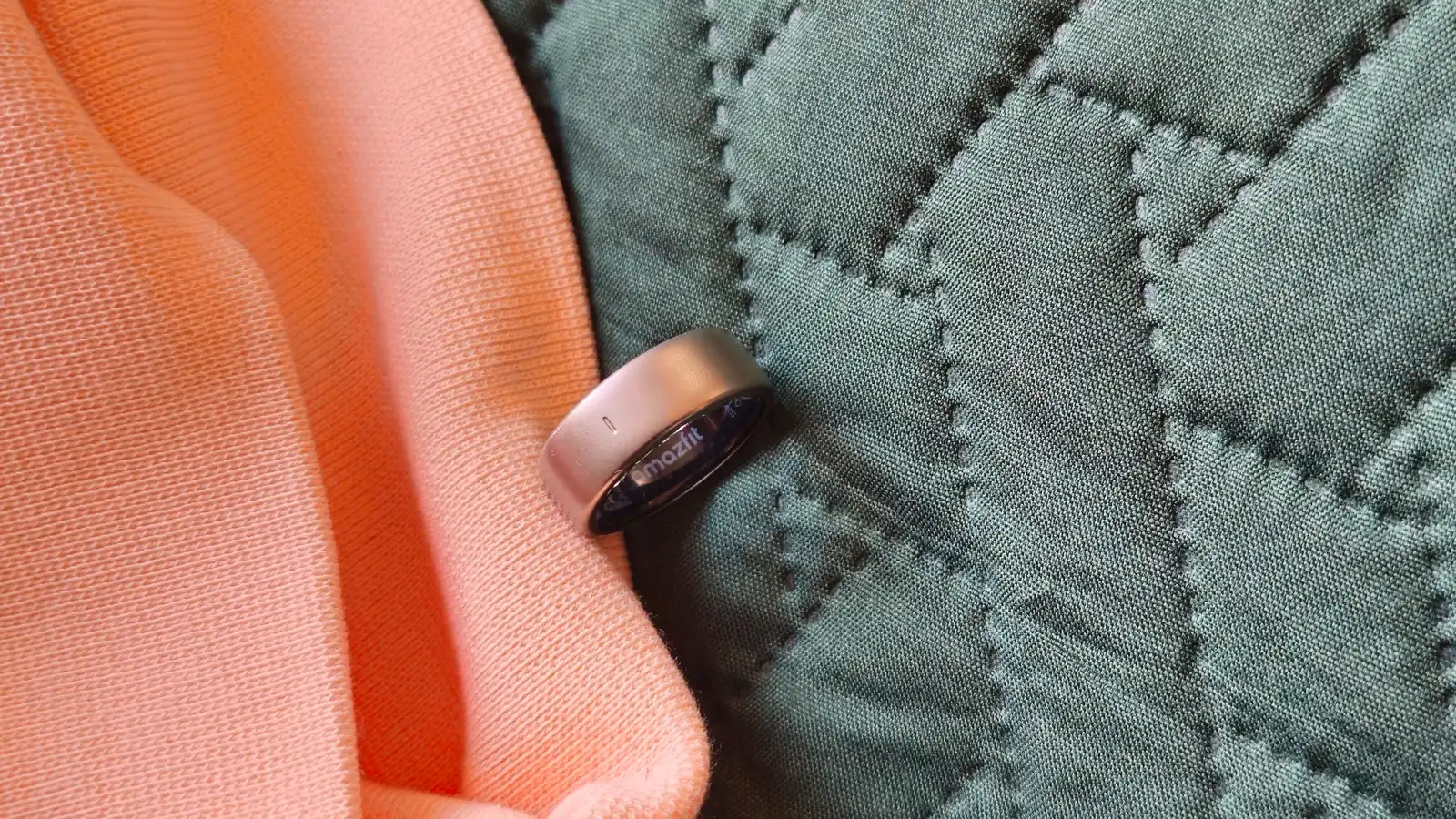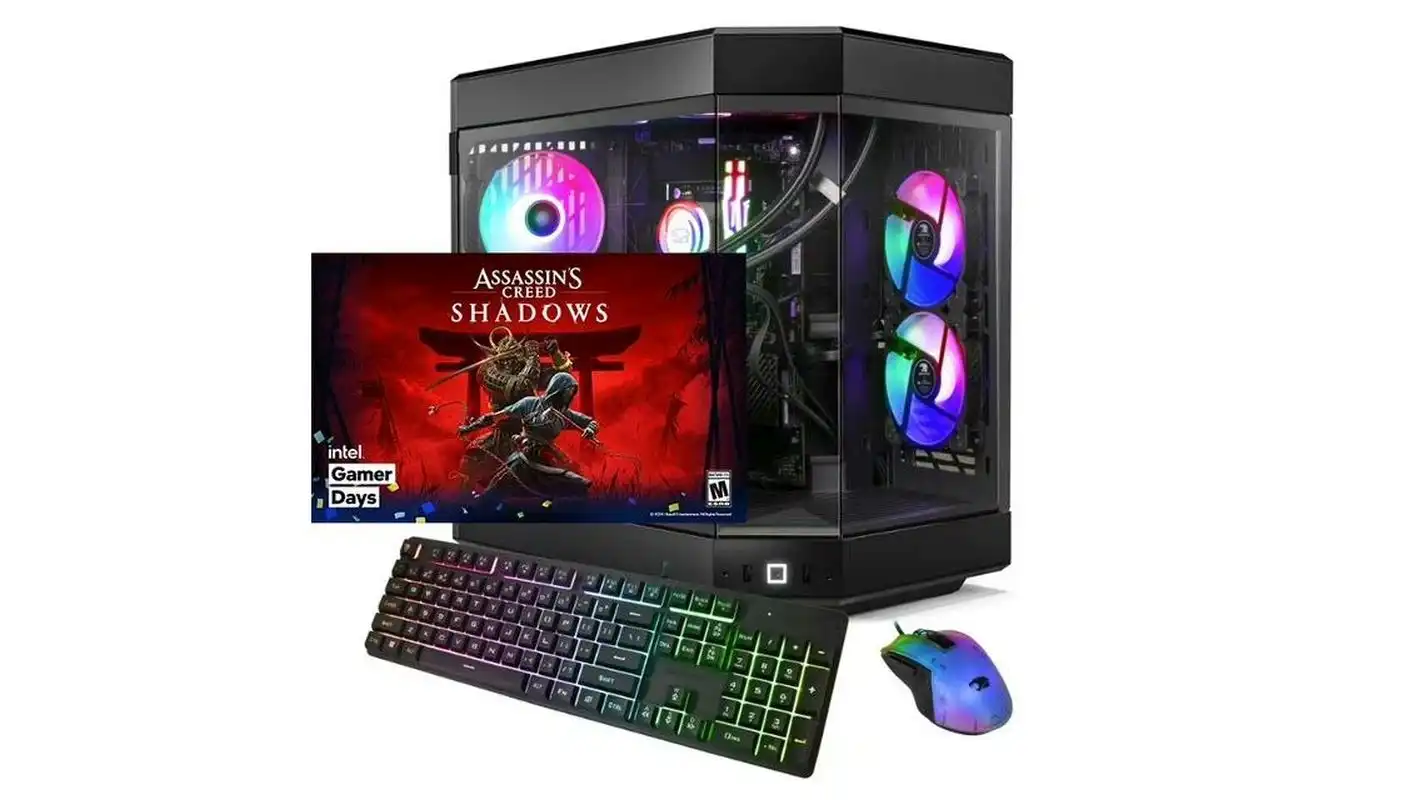A debut Amazfit smart ring that doesn’t quite stand out from the crowd
The Amazfit Helio Ring is Zepp Health’s first foray into the world of smart rings and carries hopes it can enjoy some of the success led by the Oura Ring.
Oura is no longer the only player in this space now with the Samsung Galaxy Ring and the likes of newcomers like RingConn and Ultrahuman also competing for a place on your digits.
The Helio Ring, at its core, works in a similar fashion to those other smart rings, tracking metrics like heart rate and sleep, while working in combination with Amazfit smartwatches to offer a more reliable window into your recovery needs. Like Samsung, Ultrahuman and RingConn, you don’t need a subscription to its tracking to good use.
Even with a small number of smart rings available the competition right now is fierce, so is the Amazfit Helio Ring actually the one you should be wearing?
Design & Build
- Available in one colour
- Only three ring sizes available
- Uses similar charging dock to Oura
The Helio Ring, unlike other smart rings, comes in just a single colour, which I’d describe as a nice blend of gold and grey, with an almost knurled effect that does help to tell it apart from other smart rings.
It’s made from titanium with a resin on the interior and a sensor bump that you can feel on the underside of your finger, though at never made it uncomfortable to wear.
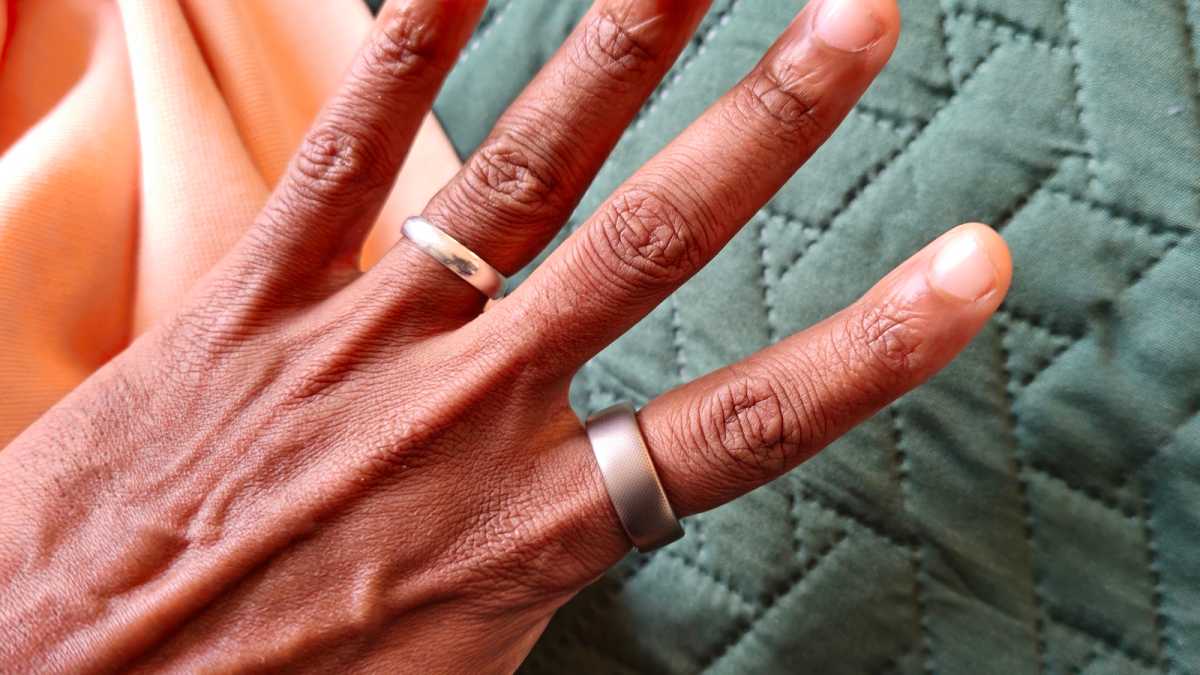
Mike Sawh
At 2.6mm thick, it’s not quite the slimmest smart ring you can wear right now. The Oura Ring 4 measures in at 2.88mm, the Samsung Galaxy Ring is 2.6mm thick and the Circular Ring Slim is 2.2mm. If you want the slimmest, it’s the RingCon Gen 2 at just 2mm.
An interesting move here by Zepp Health is to only offer the Helio in three ring sizes. That’s your pick of sizes 8, 10 and 12, which makes your options a lot more limited than other rings. You also don’t get the option of a sizing kit, with measurement methods offered to make sure you get the ideal size.
Fortunately, I was a size 8 and the fit overall was good. It didn’t spin around my finger and was comfortable to wear inside and outside of exercise and while tracking my sleep.
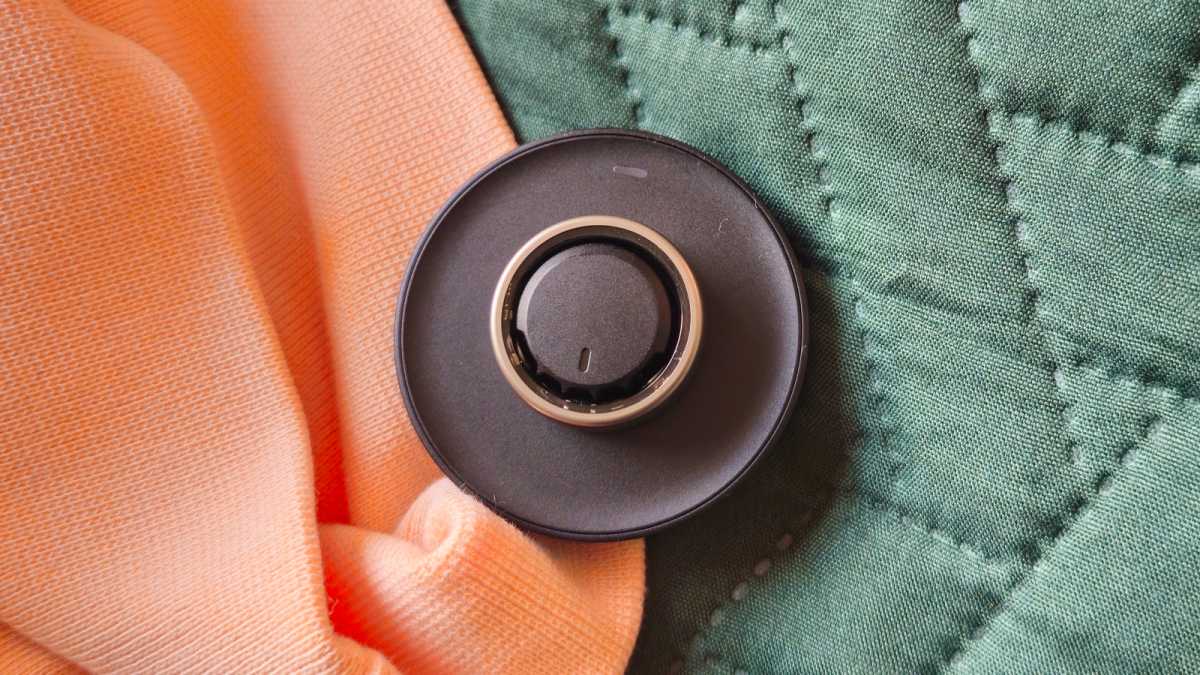
Mike Sawh
Durability-wise, it’s good to see the Helio offers a 10ATM waterproof rating, which means it’s suitable to be dunked in water up to 100 metres depth and means you can wear it for swims and showers.
One issue I tend to encounter with smart rings is that scratch too easily. I haven’t seen any bad scratches just yet, but it would still be one I’d recommend taking off for scenarios like lifting weights or anywhere where it could get bumped and knocked.
Fitness & Tracking
- Tracks steps, sleep, heart rate and stress
- Features Readiness mode like rival rings
- Works in combination with Amazfit smartwatches
The Helio features sensors that are capable of tracking heart rate, blood oxygen, temperature and stress through heart rate variability measurements. There’s also an EDA sensor, which is a sensor that’s appeared on Fitbit’s smartwatches and feeds into its promises to monitor your stress.
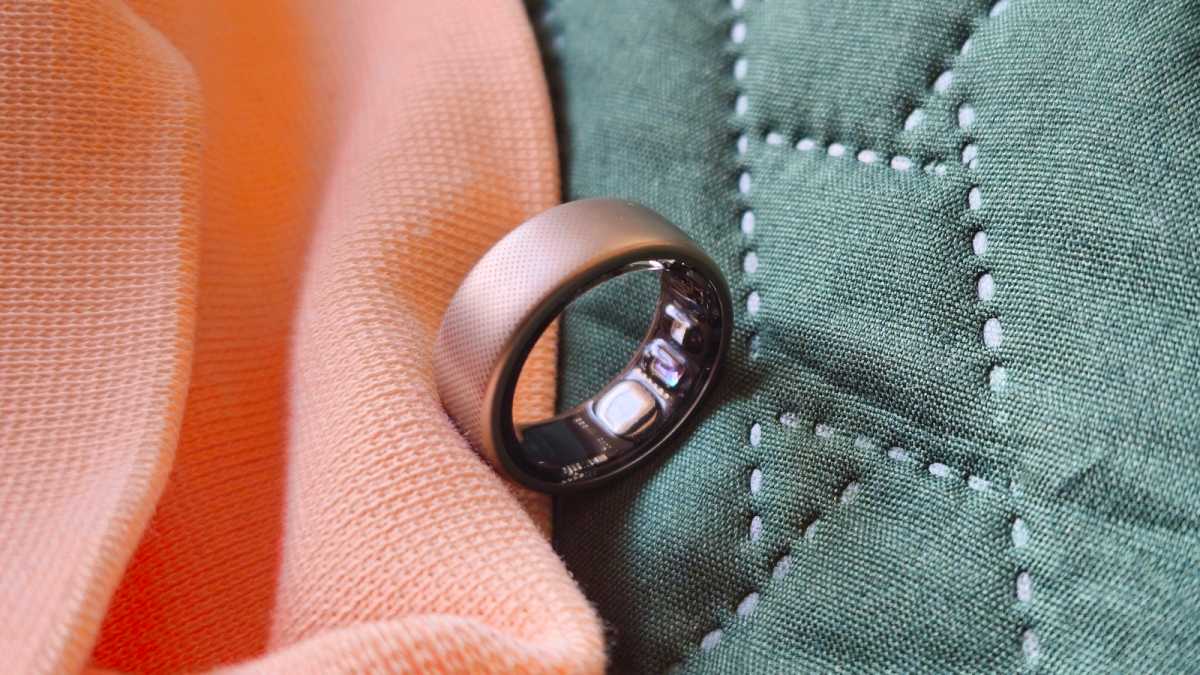
Mike Sawh
The idea, much like other smart rings, is to use the Helio Ring as a recovery tool and wearing alongside an Amazfit smartwatch to track your workouts and create a more comprehensive overview of your recovery needs. It means you can take the Helio to bed with you to track sleep if you don’t like to wear a watch and not miss out on the data.
When worn together, the idea is that data is fused inside of the companion Zepp phone app using algorithms (Samsung does a similar thing). You might see different data across the individual devices, but when combined in the app, they’ll provide the same insights.
Like most rings, it’s about letting the smart ring go about its monitoring business. Then it’s over to the app, which since the launch of the Helio has been given a major revamp.
The app now feels like a better match for a smart ring than it was previously. It’s largely free to use outside of Zepp’s AI-powered Coach Chat feature, which requires a premium subscription to access. I think most could live without access to it though.
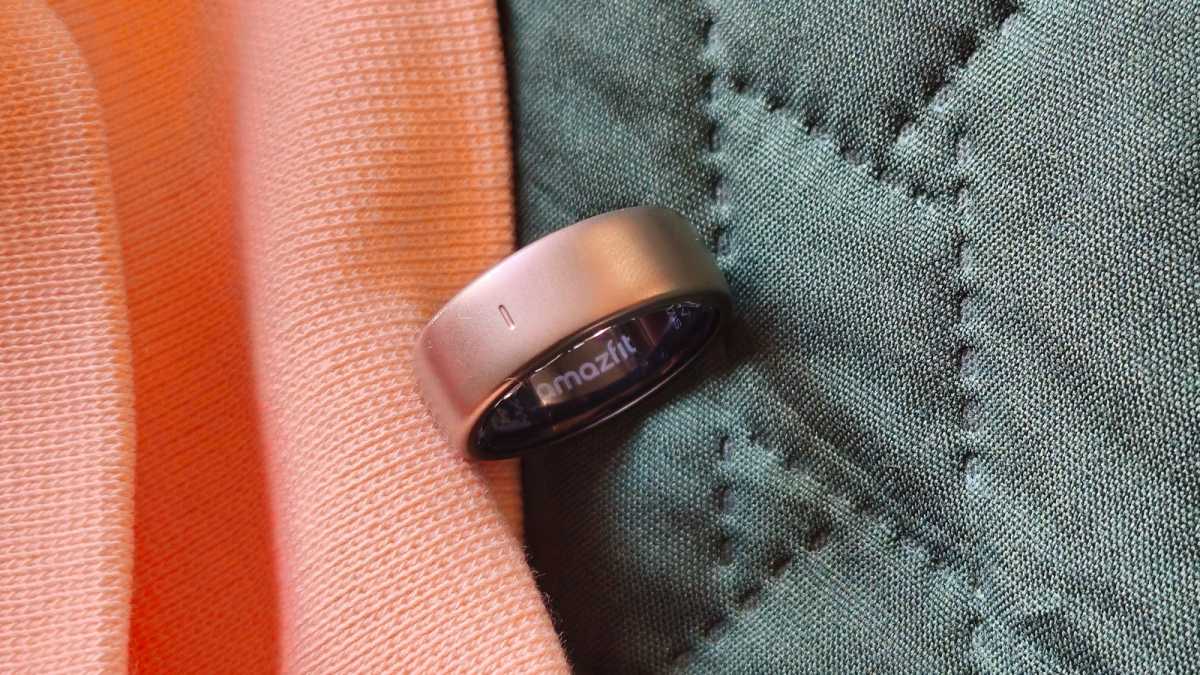
Mike Sawh
From the first screen in the app you’ll see your readiness score, which looks at sleep and exertion data, which is gathered from your exercise data. Below that lies your core metrics including resting heart rate and richer sleep data. You can also track steps and see additional metrics like PAI Health scores fuelled by raising heart rate through exercise throughout the week. There’s also additional tabs dedicated to sleep and exertion (exercise).
If you’re seeking out this ring to track steps, daily step counts were very similar to daily totals I captured on the Samsung Galaxy Ring and the step tracking on an Apple and Garmin watch. Metrics like resting heart rate and heart rate variability were similar to those devices too. When I compared sleep stats, the sleep scores were similar as were sleep duration while sleep stages like deep and REM were similar too.
Then we get into that headline readiness metric. This is something Oura, Samsung, Garmin and many others seek to offer to help you make better decisions about when you exercise or thinking about in general whether it would be sensible to have a more relaxed day.
On some days, these Readiness scores chimed with Garmin and Oura’s readiness scores and Samsung’s Energy scores. There were some days, however, when the scores were very different and is a signal of the ring’s limitations to track exercise and needing a Amazfit smartwatch that can to fill in some of the gaps in its tracking abilities.
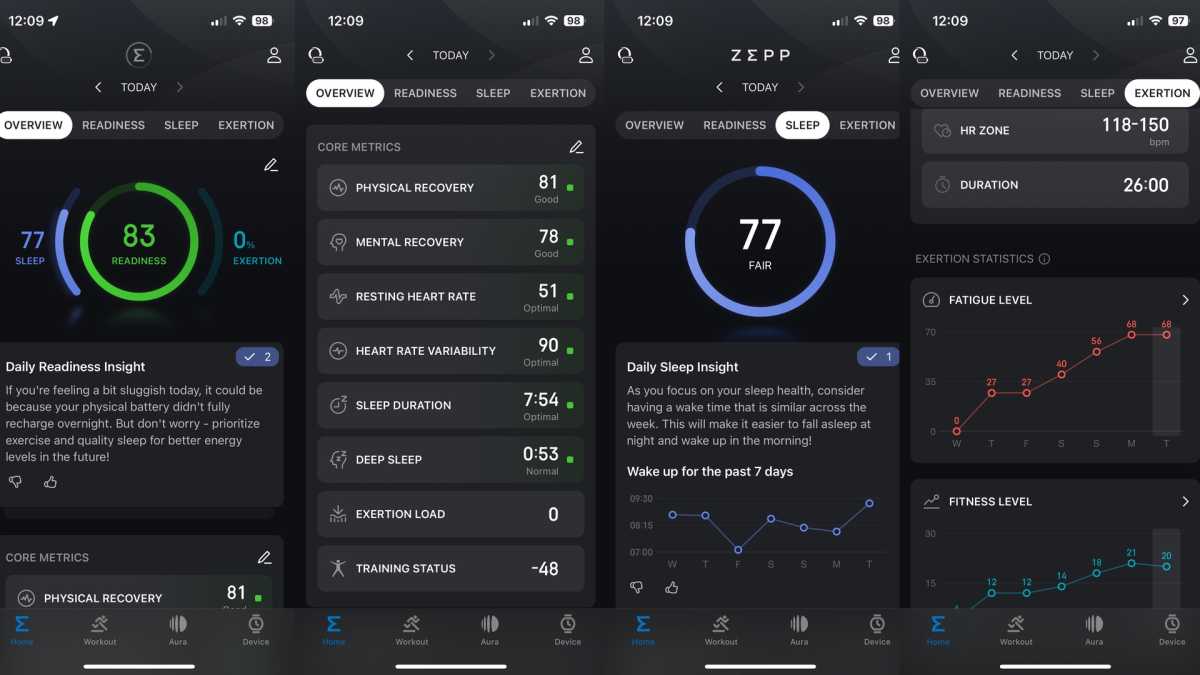
Mike Sawh
Inside of the Zepp app you’ll also see daily readiness insights. On one night my heart rate was higher than normal, which was suggested could be a sign of stress with some rudimentary advice to practice some relaxation techniques to reduce that heart rate. There’s nothing groundbreaking here, but for someone’s that getting to grips with having their tracking data put into some context, it could be helpful.
Another aspect here is the ability to track your stress and emotion. One some days, the app detected an emotional reaction prompting me to log in. I didn’t see these logged reactions until I get into the app, so a notification or prompt might make it a more useful feature to help understand what might have caused that emotional reaction.
I’ve been using the Helio with an Amazfit smartwatch, which does really feel like the way to make the best use of it. Not all Amazfit watches offer what Zepp refers to as ‘data fusion’, but most do and the T-Rex 3 I used is one of those supported devices. This way you get the exercise data that the Helio Ring isn’t capable of recording, including exercise heart rate to really put those readiness scores to best use.
Battery Life & Charging
- Up to 4 days battery life
- Charges fully in 1 hour 40 minutes
Depending on which size you grab, the battery capacity of the ring does slightly differ. A size 8 ring features a 16.5mAh battery, while a size 12 uses a 20.5mAh battery.
Zepp Health says the battery can last up to 4 days, so not quite the best battery life on offer on a smart ring but a respectable one nonetheless. You’d need to grab the RingConn Gen 2 for the best, which can last for up to 12 days.
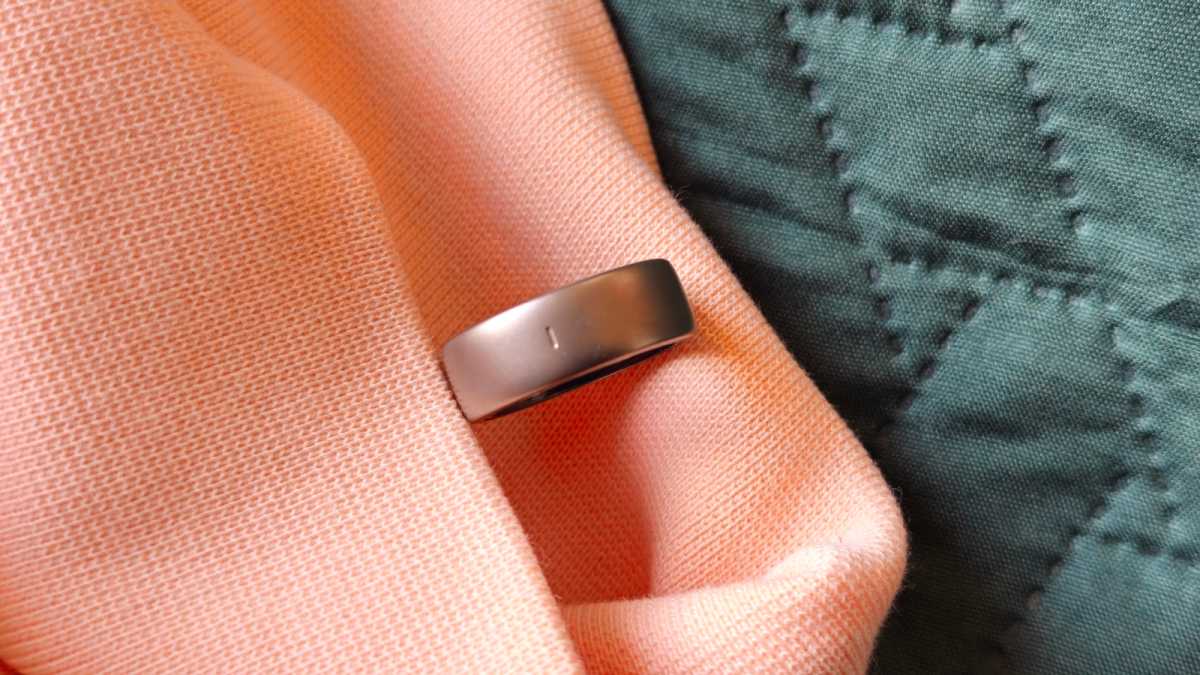
Mike Sawh
I’d say that promised battery life is optimistic, especially if you’re enabling everything that the Helio is able to monitor. Features like automatic blood oxygen, the most accurate heart rate monitoring and advanced sleep tracking will see that battery drop much quicker.
You can get four days when you pare back some of that more advanced tracking, but it was closer to 2-3 days with overnight battery drop as much as 20% at times. I found I was charging it as regularly as an Oura Ring Gen 3.
When you need to charge it, you’ll need to sit it precisely on top of a charging dock that looks near identical to the one including with Oura’s smart ring. I prefer the earbud-style charging case approach that Samsung and RingConn have adopted, but at least you know the Helio is going to stay in place when it’s time to power it up.
It takes an hour and 40 minutes to fully charge from 0-100%.
Price & Availability
The Amazfit Helio Ring launched with a price of £269/$299 but has since dropped to around £150/$170, making it one of the cheapest smart rings you can pick up at the moment.
You can buy it from the official store in the UK and US then retailers such as Amazon/Amazon US.
In comparison, the Oura Ring 4 costs £349/$349 and requires an additional monthly or annual subscription. The Samsung Galaxy Ring sits at £399/$399 and like the Helio, doesn’t require an added subscription.
You’ve also got the impressive RingConn Gen 2 for $279, the Ultrahuman Ring Air ($349) and the Circular Smart Ring Slim ($264).
Check out our list of the best smart rings to see all the top options.
Should you buy the Amazfit Helio Ring?
The Amazfit Helio Ring is a smart ring that offers something different in terms of design compared to its rival, even if it’s not the slimmest available. The core tracking has been good for me and now has a companion app that’s a much better fit for what the Helio can track.
It does feel like you need an Amazfit smartwatch to get the most out of it. Given both watches and rings aren’t ridiculously expensive, you could feasibly grab both now for around the same price as a rival ring.
There’s are some issues to be aware of though. The lack of sizing options being the most noteworthy one, which instantly limits its appeal. It’s also offering battery life as long as Samsung, RingConn and, to a lesser extent, Oura are able to right now.
If you can get it to fit, the Helio Ring will give you a good smart ring experience. I’m just not convinced it does a better job as a package than Oura and RingConn particularly, while Samsung’s ring offers a sleeker design, solid overall tracking, a more convenient charging solution and better battery to make up for its slightly half-baked software.
Specs
- Up to 4 days battery life
- Works with Android and iOS
- Subscription-free app
- 2.6mm thickness
- PPG sensor
- Temperature and EDA sensor
- 10 ATM waterproof rating

